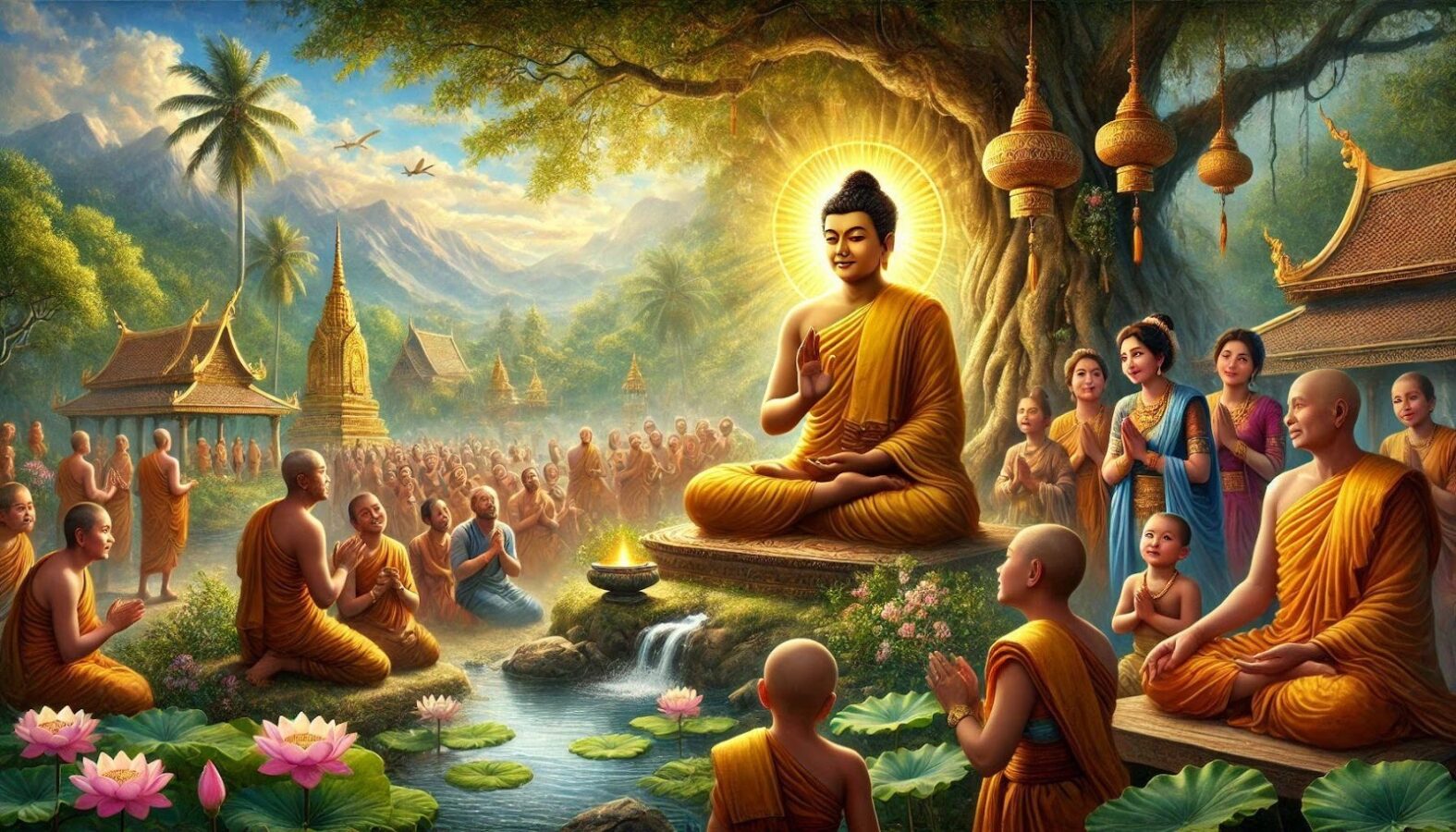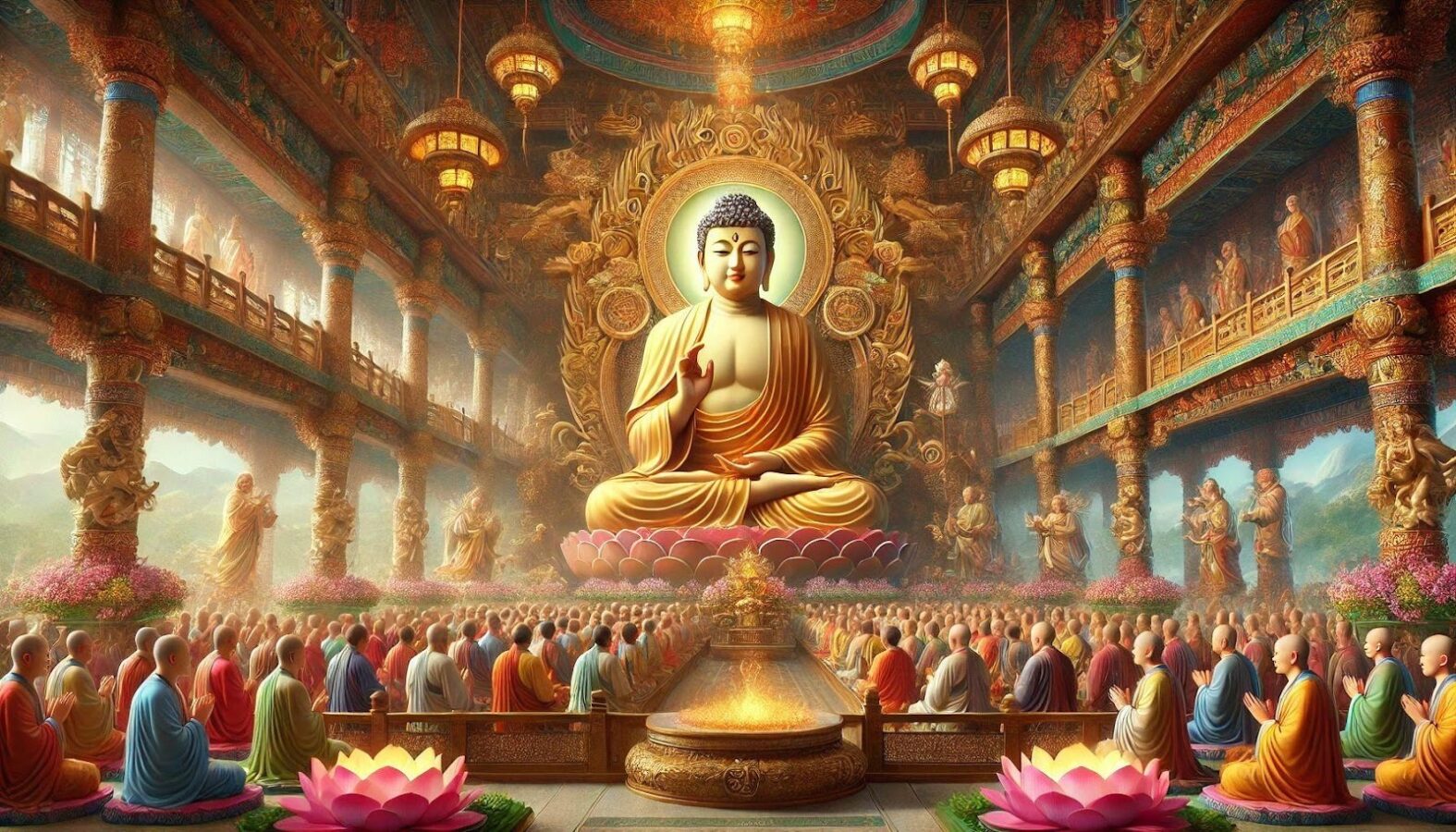
Date: 04/13/2024 04/14/2024
Location: Star Lake Meditation Center
Teacher: Otto Huang
Dharma Talk
Where Does Suffering Come From?
Once, Buddha was wandering in the country of Magadha, on the north bank of the Ganges River, and came to a village called Uruvela, staying in a nearby forest.
A village chief with the surname Donkey, hearing that Buddha had arrived and thinking of Buddha’s teachings on understanding and extinguishing suffering, admired him and wished to hear his teachings personally, so he went to visit and seek advice.
After paying his respects to Buddha, the village chief asked,
“Blessed One! I heard that you can explain the cause of suffering and how to extinguish it. This is wonderful. Please, out of compassion, explain it to me as well.”
“Blessed One! If I were to explain the cause of suffering and its cessation in terms of ‘what happened in the past’ and ‘what will happen in the future,’ you might believe it, or you might not, and it could increase your doubts. Now, as we are sitting here, let me use examples of things that could happen around us to explain. Listen carefully and contemplate,” Buddha replied.
“Of course, Blessed One!”
“Chief, think about it: Would you feel worried, lament, suffer, be displeased, or despair over anyone in your village being killed, captured, fined, or condemned?”
“Yes, Blessed One!”
“However, Chief, would you feel the same for every person in your village if they were killed, captured, fined, or condemned?”
“No, Blessed One!”
“Chief, why would you feel this way for some people and not others?”
“Blessed One! Those who would make me worry, lament, suffer, be displeased, or despair are the ones I love and care for. My attachment to them causes these feelings, while for others, who are unrelated to me, I do not feel the same.”
“Chief, by extending this logic to the past and future, we can understand that all forms of suffering for beings, whether in the past, present, or future, are rooted in desire. They arise from desire, accumulate due to desire; desire is the cause, desire is the condition.”
“Blessed One! What an excellent analogy! Rare indeed, Blessed One! You said, ‘All suffering arises from desire; it is born from desire and accumulates due to desire; desire is the cause, desire is the condition.’ Such a skillful explanation!
Blessed One, I have a son named Jīvaka. Once, Jīvaka spent the night away, and early the next morning, I sent someone to check on him. While waiting for my messenger to return, I could only feel dejected, constantly hoping ‘Jīvaka is alright.'”
“Chief, if something happened to Jīvaka, would you worry, lament, suffer, be displeased, or despair?”
“Yes, Blessed One!”
“So, Chief, from this incident, you can also understand ‘All suffering arises from desire; it is born from desire and accumulates due to desire; desire is the cause, desire is the condition.’
Chief, before you met Jīvaka’s mother, did you have feelings of desire for her?”
“No, Blessed One!”
“It was after you met her that these feelings of desire arose, right, Chief?”
“Yes, Blessed One!”
“Chief, if something happened to Jīvaka’s mother—being killed, captured, fined, condemned—would you feel worried, lament, suffer, be displeased, or despair?”
“Yes, Blessed One!”
“Chief, this also lets you understand ‘All suffering arises from desire; it is born from desire and accumulates due to desire; desire is the cause, desire is the condition.’
Chief, if there are four kinds of attachment in your heart, and these attachments change impermanently, then four kinds of suffering arise. If there are three, two, or one kind of attachment, when these attachments change impermanently, that many kinds of suffering will arise.
Chief, if there is no attachment, then there will be no grief or suffering.
One without attachment,
Will not suffer grief or torment;
One free from grief and torment,
Is liberated, like a lotus rising above water.”
When Buddha explained this way, the village chief named Donkey was instantly purified of worldly attachments, gained a clear vision of the Dharma, comprehended and entered the Dharma without doubt or fear. He joined his palms in respect to Buddha, saying, “Blessed One! I have transcended. From now on, I take refuge in the Buddha, the Dharma, and the Sangha, wishing to be a disciple of Buddha for life. Please bear witness.”

